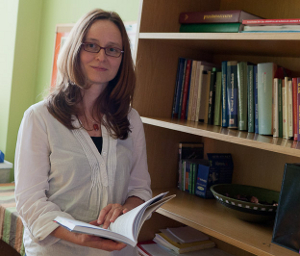The Student and Life Management Consulting Service was founded at Semmelweis University’s Institute of Behavioural Sciences in the early 1990s by the recently deceased Dr. Mária Kopp, in response to student needs and in accordance with international practice. What had initially started off as need-based supplementary activities has gained increasing importance over the years. While 15 years ago, only some 20 students turned to the Consulting Service annually, participation in its individual and group sessions has skyrocketed to several hundred students per annum in recent years.
 The Centre for Psychosomatic Disorders, part of the Institute of Behavioural Sciences, has been involved in the work from the very beginning. A new opportunity presented itself in 2010 when, as part of a Social Renewal Operational Programme grant (TÁMOP-4.1.1.A-10/2/KMR), the Consulting Service joined forces with the University’s Career Office, expanded its range of activities, and institutionalized its operations. Thus, the services which had previously been guided mostly by student inquiries now function in a much more organised manner, in partnership with the Career Office.
The Centre for Psychosomatic Disorders, part of the Institute of Behavioural Sciences, has been involved in the work from the very beginning. A new opportunity presented itself in 2010 when, as part of a Social Renewal Operational Programme grant (TÁMOP-4.1.1.A-10/2/KMR), the Consulting Service joined forces with the University’s Career Office, expanded its range of activities, and institutionalized its operations. Thus, the services which had previously been guided mostly by student inquiries now function in a much more organised manner, in partnership with the Career Office.
It was also in 2010 that the Student and Life Management Consulting Service began counselling in English and German in addition to Hungarian, thus opening up to the University’s foreign students. Aside from academic difficulties, the most prevalent problems faced by students from other countries are issues related to fitting in and the absence of their family and friends.
Imola Sándor, head of the Consulting Service, has been working at the University’s Institute of Behavioural Sciences for around ten years. She counselled 71 students over the past year and a half, spending a total of 680 hours with them during this time.

The majority of students seek help with learning problems, complaining of too much stress and exam difficulties; however, over the course of the discussions, it often turns out that the real problem lies elsewhere. Issues that frequently come to light are family problems, difficulties caused by growing up, grief-related issues, and difficulties coping with chronic illness in the family, though relationship conflicts also come up a lot. Of course, in some cases, it is truly the university studies which is the core of the problem, such as lack of proper preparation and study techniques, or because they find it hard to deal with time and performance pressure, the lack of free time, or exam stress. Other students have difficulties processing the various emotional burdens they encounter during their practical lessons, such as autopsies or other experiences related to death and dying, Imola Sándor related, summarising the typical cases they come across.
The aim of the counsellors involved in the programme is not to dig really deep – this is not possible here – but to concentrate on the most important problems and help students solve these. During the meetings, the students are taught various self-help techniques and develop their problem-solving skills, thus enabling them to cope with future problems on their own and regain their mental balance.
Typically, students participate in ten sessions on average, but those facing very difficult obstacles can continue coming, even for years. Instead of or in addition to individual therapy, students have the option of taking part in study help clubs, stress management groups and autogenic training sessions. The services available to students have recently expanded with, among others, an art therapy/self-awareness group and exam scenario training; both programmes require advance registration.
A dentistry student currently in her third year had lived in stress for weeks during the past semester over the anatomy comprehensive examination. There is nothing surprising in this, as virtually every med school student dreads this particular exam. However, she ended up failing the test and, to make matters worse, had to delay her studies by a full year as a result. She was sad and disappointed, and though she spoke with her parents and friends about her feelings, she was not able to get over this failure. In fact, she sometimes got the feeling that she’d never be able to overcome her fear of examinations. One of her friends suggested that she seek help, and so she called one of the Student and Life Management Consulting Service’s counsellors, whom she ended up seeing for the next several months. When she returned to the university, she felt confident that she had managed to overcome her problem, and though she ended up having a few more unsuccessful exams, she now handled these obstacles with much more ease. Though she believes there are several people in her immediate surroundings who would benefit from help similar to what she had received, many parry the problem instead, either because they do not take the issue seriously enough, or because they are afraid to turn to a psychologist.
Melinda Pap
Translated by Gina Varga-Gönczi


